
John Hennessy and David Patterson Share ACM Turing Award
ACM recently announced that computer scientists John Hennessy and David Patterson have shared the 2017 ACM Turing Award.

Tag Archive: CCC Blog
Items from the Computing Community Consortium (CCC) Blog.

ACM recently announced that computer scientists John Hennessy and David Patterson have shared the 2017 ACM Turing Award.
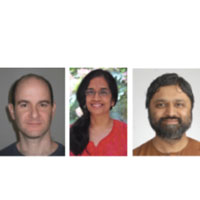
Great Innovative Idea is from Tamraparni Dasu, Yaron Kanza, and Divesh Srivastava, of AT&T Labs-Research. They were one of the Blue Sky Award winners at the ACM SIGSPATIAL 2017 conference.
CCC’s new call for proposals for workshops that will catalyze and enable innovative research at the frontiers of computing.

Two major hardware security design flaws—dubbed Meltdown and Spectre—were broadly revealed to the public in early January 2018.
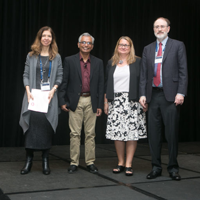
The CCC recently sponsored a Blue Sky Ideas Conference Track at the 32nd Association for the Advancement of Artificial Intelligence (AAAI) Conference on Artificial Intelligence (AAAI-18), February 2-7, 2018 in New Orleans, LA.
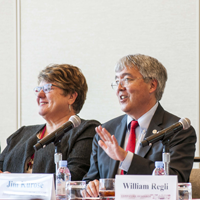
The goal of the final panel of the CCC 2017 Symposium, called Connecting Computing Research with National Priorities and moderated by CCC Vice Chair Mark D. Hill, was to get a perspective from people who have or are currently serving in government.

The Microsoft Research Podcast interviewed Microsoft Principal Research Manager, Dr. Krysta Svore about her field of quantum computing. The Computing Community Consortium (CCC) Post Moore’s Law Computing Task Force has also been looking into the potential of quantum computing.
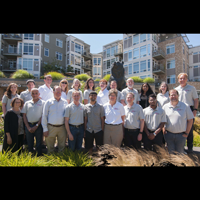
The 2018 call for CCC Council member nominations.
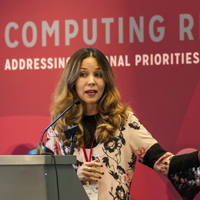
The CCC Symposium was held on October 23-24, 2017 in Washington, DC. This article is focused on the Security and Privacy for Democracy Panel.

Microsoft Research Podcast recently interviewed Computing Community Consortium (CCC) Executive Council member and CCC Intelligent Infrastructure (II) Task Force Co-Chair Ben Zorn, from Microsoft Research, on programming languages and how they are impacting the world.
In recent weeks, several sources have reported on two security design flaws in computer hardware that involve undesirable interactions between processor speculative execution and memory protection, but whose implications are still emerging.
This website uses cookies so that we can provide you with the best user experience possible. Cookie information is stored in your browser and performs functions such as recognising you when you return to our website and helping our team to understand which sections of the website you find most interesting and useful. You can adjust all of your cookie settings.
